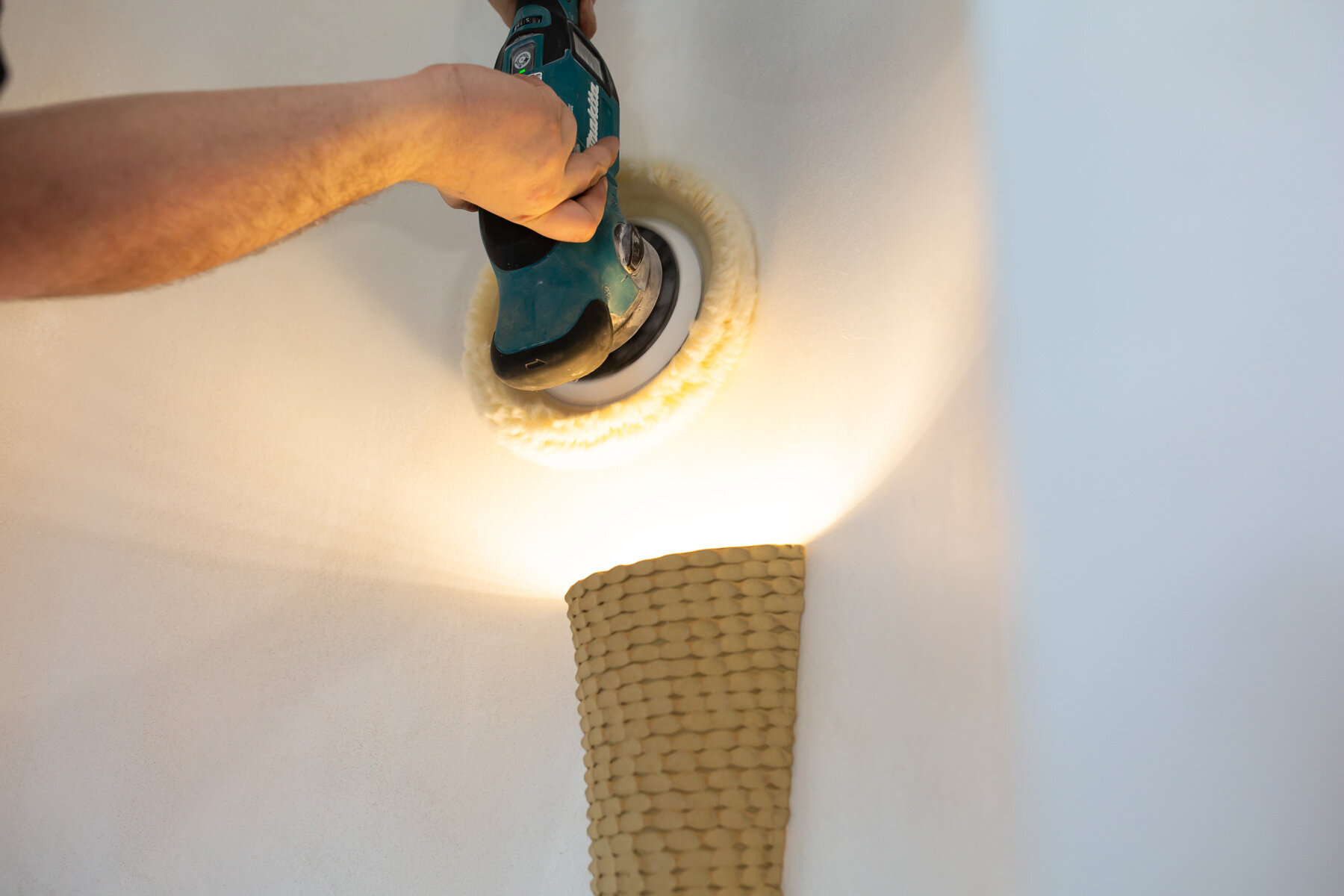
Frequently Asked Questions
-
Venetian plaster is a lime-based plaster product with roots that go back centuries to the Roman era, and of course, Venice. The key to its unique finish, which is a translucent marble effect, is enhanced by applying it in continuous layers. It is applied in steps, first with a primer, followed by several layers of plaster itself, then polished and finished with a sealer or wax to get the desired look.
-
Microcement is a cement based coating which can be applied to floors, walls and to joinery in residential and commercial environments to create a concrete look and feel at the fraction of the cost and weight of real concrete.
-
Microcement can be used throughout both residential and commercial spaces. However, the two most popular areas are kitchens and bathrooms.
Kitchen
Microcement is an ideal choice for kitchens due to its non-slip properties and easy maintenance. Its continuous surface can adapt to any layout, providing a uniform aesthetic that enhances the overall design of the room. Additionally, microcement is resistant to humidity, water penetration, and heat—key factors to consider when selecting kitchen materials. For flooring, a matte or polished finish is recommended, while walls can be customized with textured or patterned designs to reflect individual tastes.
Bathroom
One of the standout advantages of microcement in the bathroom is its exceptional resistance to humidity. As one of the smaller spaces in the home, the bathroom benefits from a cohesive design, and microcement allows for a single finish to be applied seamlessly to both floors and walls. Its versatility extends further, enabling the creation of custom features such as hand wash basins, shower trays, and even bathtubs, all of which can be crafted to match your unique style and design vision.
-
Depending on the scope of the finish the product is sealed accordingly. Natural sealers are used for low-traffic areas whilst polyurethane sealers are utilised in heavy traffic or wet areas.
-
For regular cleaning and maintenance we recommend a microfibre cloth with water and natural cleaning products with a neutral PH. Avoid abrasive cleaners or harsh chemicals.
Can’t find the answer you are looking for? Have more questions?
